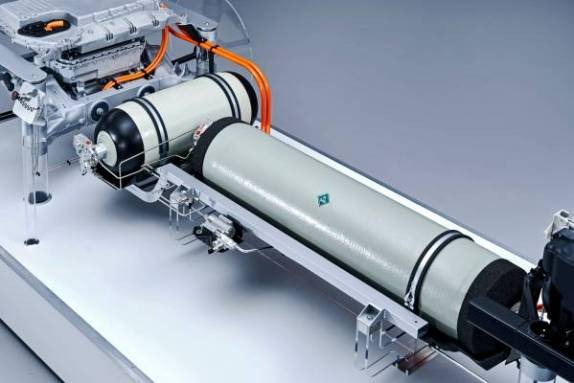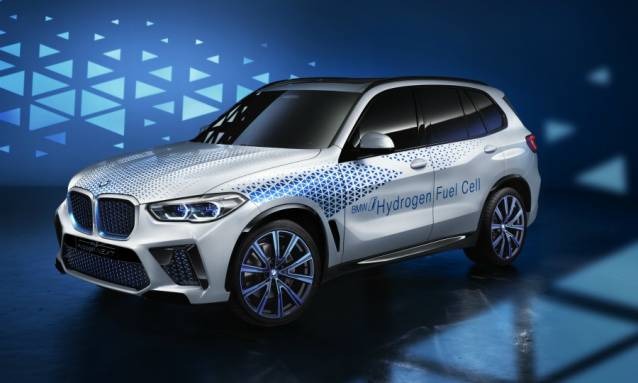BMW Is Committed To Hydrogen Fuel Cells With I Hydrogen NEXT
It's an open secret that BMW and Toyota are working together in developing the German carmaker's next-generation hydrogen fuel cell vehicles. Meet the BMW i Hydrogen NEXT. It's based on BMW's current-gen X5 SUV and is powered by a hydrogen fuel cell electric powertrain. Developed in conjunction with the Toyota Motor Corporation since 2013, the i Hydrogen NEXT will debut in 2022 as a small series of test vehicles.
"The hydrogen fuel cell technology could quite feasibly become the fourth pillar of our powertrain portfolio in the long term," said Klaus Fröhlich, Member of the Board of Management of BMW AG, Research and Development. "The upper-end models in our extremely popular X family would make particularly suitable candidates here."
In the foreseeable future, BMW customers can choose between four powertrains, with each representing a pillar of BMW's powertrain portfolio: internal combustion, plug-in hybrid, all-electric, and hydrogen fuel cell. The challenge is how to retain the typical driving dynamics that BMW vehicles are known for across each pillar, and the BMW i Hydrogen NEXT offers a unique solution.
The fuel cells generate up to 170 horsepower (125 kW) of electric energy by harnessing the chemical reaction between hydrogen and oxygen. The vehicle also comes with BMW's fifth-gen eDrive unit – which will debut in the upcoming BMW iX3 EV – with a 'peak power' battery pack positioned above an electric motor. With a combined system output of 374 horsepower, the i Hydrogen NEXT is a serious performance contender without spewing harmful gasses to the atmosphere.
Apparently, the i Hydrogen NEXT is also a long-range contender. It's equipped with a pair of 700 bar tanks to hold six kilograms of hydrogen. "Refueling only takes three to four minutes, and this guarantees a long-range regardless of the weather conditions," said Jürgen Guldner, Vice President of Hydrogen Fuel Cell Technology and Vehicle Projects at the BMW Group.

All of this sounds exciting, but BMW admits it will take time before it offers a production-ready version of the i Hydrogen NEXT. The limited number of hydrogen filling stations and infrastructures are partly to blame, but BMW is more focused on the renewable aspect of the scenario. "In our view, hydrogen as energy carrier must first be produced in sufficient quantities at a competitive price using green electricity," said Klaus Fröhlich. "Hydrogen will then be used primarily in applications that cannot be directly electrified, such as long-distance heavy-duty transport."

BMW is also involved in the BRYSON research project in alliance with the Munich University of Applied Sciences, Leichtbauzentrum Sachsen GmbH, the Technical University of Dresden, and WELA Handelsgesellschaft mbH to develop space-efficient, high-pressure hydrogen storage tanks. The project aims to develop storage tanks with a flat design for universal vehicle architectures. Until then, BMW is poised to release 25 new models by 2023, twelve of which are all-electric vehicles.
